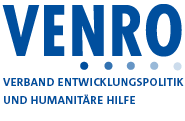More and more countries, mainly in the Global North, commit to a feminist foreign and development policy. In our interview, Memory Bandera Rwampwanyi from the African human rights organization DefendDefenders explains which aspects the German government should take into account in the practical implementation.
From a perspective of the Global South, how do you assess the concept of a feminist foreign and development policy?
“In my view, there are two sides to the story: On the plus side, the policy could be viewed as affirmative action, seeking to tackle historical and longstanding issues including discrimination, women dis-empowerment and participation challenges that have marginalized women in the Global South. The policy would place women at the center of discussions.
On the other side, however, in many communities it is prone to be interpreted as a foreign narrative intended to spread a foreign agenda particularly with respect to diverse genders and sexual orientations. Problem assessments and demands from political leaders and experts from the Global South should definitely be heard in a reorientation towards a feminist development policy.”
What potentials and shortcomings do you see regarding the implementation in both the Global North and South?
“The implementation of a feminist foreign and development policy opens up opportunities to strengthen bilateral cooperation between countries in the Global North and South and to foster the dialogue with civil society. In both the Global North and South, it could ensure increased support to civil society organisations, in particular to organisations working on related issues e.g. sexual and reproductive health or women led organisations. From a Global North perspective, it might be good to strengthen bloc policies, e.g. at EU level. That could be more effective and would support implementation at national level.”
What is your advice to the German Government and the European Union regarding a feminist foreign and development policy?
“First of all, before implementing the policy at EU and national level, the African Union should be consulted based on its 2019 Strategy for Gender Equality and Women’s Empowerment (GEWE). This strategy seeks to address similar issues that a feminist foreign and development policy would tackle. The GEWE strategy is a guiding framework document to strengthen women’s agency in Africa and address their concerns.
I also think that a wide bottom-up consultation should be conducted with all relevant stakeholders. Moreover, it is important to consider the current context and its impact on feminism – for instance challenges posed by the Covid19 pandemic and other similar pandemics.
I would also recommend to consider experiences and best practices of other countries that have already rolled out a feminist and development policy, like Sweden and Canada. And finally, when it comes to its implementation, the policy should be comprehensive and include an appropriate set of guidance.”
Memory Bandera Rwampwanyi is Director of Programs and Administration of the African human rights organization DefendDefenders, the East and Horn of Africa Human Rights Defenders Project.
| Interview |
Die Inhalte auf dem VENRO-Blog geben Meinungen und Einschätzungen unserer Autor_innen wieder. Sie können von abgestimmten VENRO-Positionen abweichen.
 Mitgliederbereich
Mitgliederbereich
